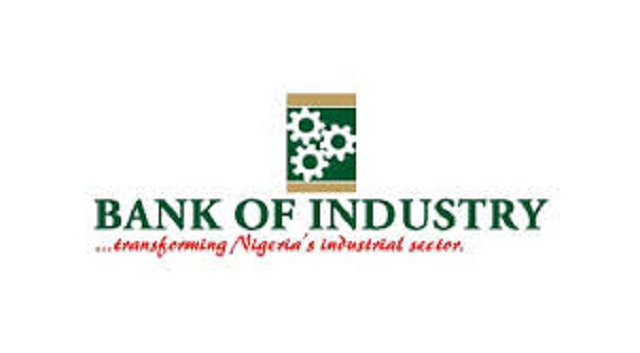In recent months, the Nigerian government has been exploring and implementing new tax reforms aimed at boosting the nation’s revenue generation and improving its economic climate. The proposed tax changes are generating significant discussion among business leaders, particularly in the small and medium enterprises (SME) sector.
While these reforms are seen as a potential source of growth for Nigeria’s economy, they also come with their own set of challenges. This feature takes an in-depth look at the proposed tax reforms, their advantages, disadvantages, and how they compare with similar changes made by other African nations.
The Proposed Tax Reforms
The Nigerian government’s new tax reform package, which includes adjustments to the Value Added Tax (VAT), Corporate Income Tax, and Personal Income Tax, is designed to increase tax compliance and broaden the tax base. The reform aims to address the nation’s perennial revenue shortfall, which has been exacerbated by over-reliance on oil revenues.
One key aspect of the reform is the introduction of a progressive tax rate for corporate entities based on their turnover, rather than a flat rate. This aims to ease the burden on smaller businesses while increasing the tax burden on larger firms that have the capacity to pay more.
Another notable change is the planned increment of VAT from 7.5% to 10%, which is expected to generate more revenue, particularly from the informal sector, which traditionally remains outside the tax net.
The government has also promised to invest in tax infrastructure and implement measures to reduce tax evasion, which has been a major issue in the country. However, the details of how this will be done remain vague.
The Advantages of the Tax Reforms
1. Increased Revenue Generation
One of the main advantages of the tax reforms is the potential to significantly increase Nigeria’s revenue base. According to the Federal Inland Revenue Service (FIRS), the VAT increment alone is expected to raise an additional ₦1.5 trillion annually. This would support government spending on critical infrastructure and social services, which could benefit businesses by improving the overall business environment.
2. Encouragement for Formalization of Businesses
The tax reforms are expected to encourage the formalization of businesses, especially in the informal sector, by simplifying the tax collection process. This could be particularly beneficial for SMEs, which represent a significant portion of the economy. Formalization can provide access to credit, better market visibility, and government contracts, which would ultimately promote business growth.
3. Fairer Taxation Structure
The progressive tax rates based on turnover could level the playing field between large corporations and SMEs. Smaller businesses, which have often struggled to meet the same tax rates as bigger counterparts, could benefit from a more equitable system that acknowledges their limited capacity.
The Disadvantages of the Tax Reforms
1. Increased Cost of Doing Business
One of the primary concerns raised by business owners is the potential for increased operational costs. The VAT increase to 10% is expected to lead to higher prices for goods and services, which could result in reduced consumer spending. For SMEs operating on thin margins, these increased costs may not be sustainable, especially without corresponding increases in income.
2. Tax Compliance Challenges
While the government aims to increase compliance through these reforms, SMEs often face difficulties in navigating complex tax regulations. The lack of adequate tax education and support systems could make compliance burdensome for smaller businesses, which could lead to penalties and operational disruptions.
3. Potential for Overburdening Businesses
While the tax reforms intend to be progressive, the burden on businesses could still be overwhelming. A recent survey by the Lagos Chamber of Commerce and Industry (LCCI) indicated that 45% of SMEs find it difficult to pay taxes, citing high rates and complicated procedures as significant barriers. With the VAT increase and other changes, businesses, particularly in the retail and manufacturing sectors, may struggle to stay afloat.
Comparing Nigeria’s Tax Reforms to Other African Countries
Several African countries have recently undertaken tax reforms aimed at improving revenue generation. For instance, Kenya’s introduction of a higher VAT rate of 16% in 2018 generated a notable increase in tax revenues.
However, this also led to inflationary pressures that affected lower-income households. Similarly, South Africa’s progressive tax reforms, which included the introduction of tax credits for low-income individuals and the hike in VAT, have had mixed results. While the country saw an increase in revenue, the burden on consumers was significant, especially in a struggling economy.
In comparison, Nigeria’s proposed tax reforms seem to strike a balance between raising more revenue and alleviating the burden on SMEs. However, Nigeria’s challenge will be in balancing these interests while ensuring that the informal sector, which is notorious for its tax evasion, is adequately captured.
Data Analysis: Impact on SMEs
SMEs make up more than 90% of Nigeria’s businesses, yet they contribute a disproportionately small share of tax revenue. According to the National Bureau of Statistics (NBS), SMEs account for over 50% of the total workforce in Nigeria, but they contribute less than 5% of total tax revenue. This points to the untapped potential for tax collection within this sector.
By comparing the impact of VAT reforms across various sectors, it is evident that while some businesses, particularly in the retail and service sectors, may face higher operating costs, others—especially in agriculture and manufacturing—could see significant improvements in formalization and access to funding. The key will be for the government to ensure that support systems are in place for SMEs to ease their transition into the formal tax bracket.
Recommendations
Improved Tax Education and Support Systems the Nigerian government must prioritise education on the new tax systems, especially for SMEs. Providing training and clear guidelines on compliance can reduce the burden on small business owners.
Gradual Implementation A phased approach to implementing the VAT hike would help businesses, particularly SMEs, adjust to the new rates gradually. This would also provide time for the government to address any compliance challenges that arise.
Strengthening Infrastructure, the government should invest in technology and infrastructure to streamline tax collection and reduce the administrative burden on businesses. This includes improving online payment systems and creating a more transparent tax environment.
Incentives for SMEs Tax reliefs or subsidies for SMEs, particularly those in critical sectors like agriculture and manufacturing, could encourage business growth. Providing incentives for tax compliance could be a way to increase formalization without overwhelming businesses.
Conclusion
The proposed tax reforms in Nigeria present both opportunities and challenges for the business community. While the potential for increased government revenue and the formalization of businesses could create a more robust economy, the increased tax burden, especially for SMEs, requires careful management.
By learning from the experiences of other African nations and addressing the concerns of businesses through education, support, and phased implementation, Nigeria can strike a balance that benefits both its economy and its businesses in the long term.












